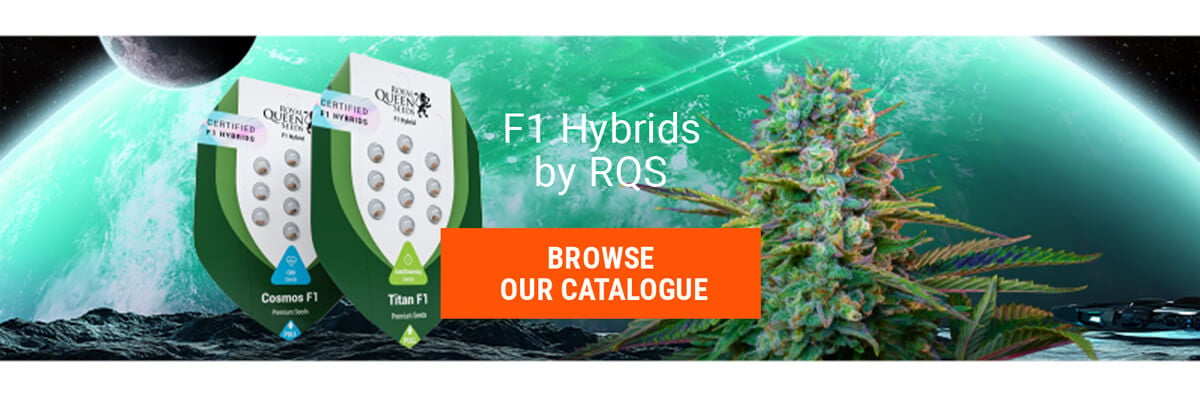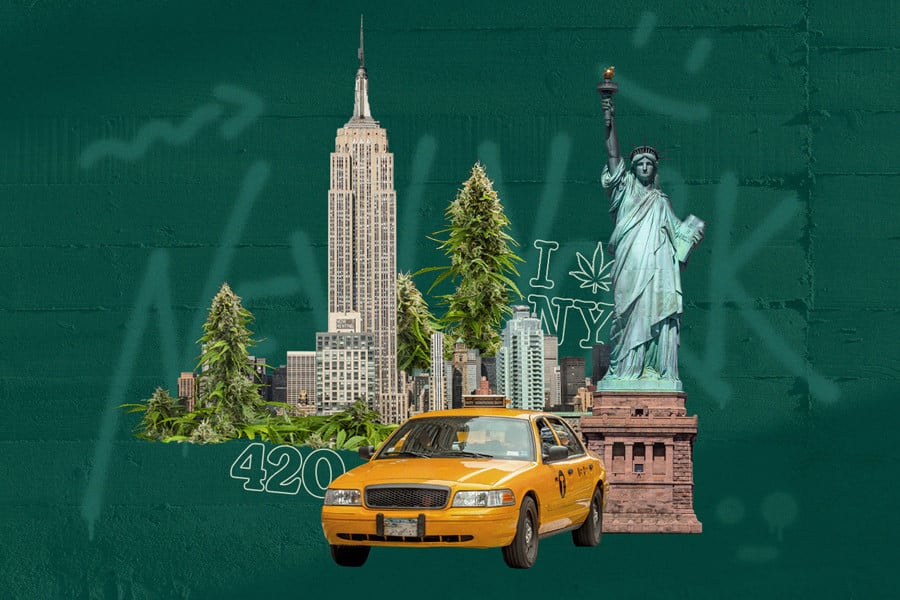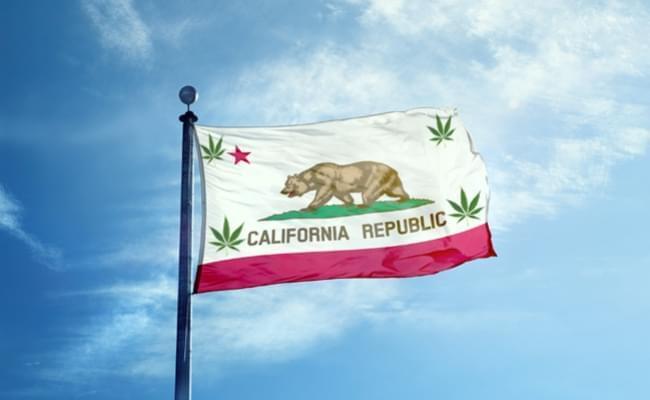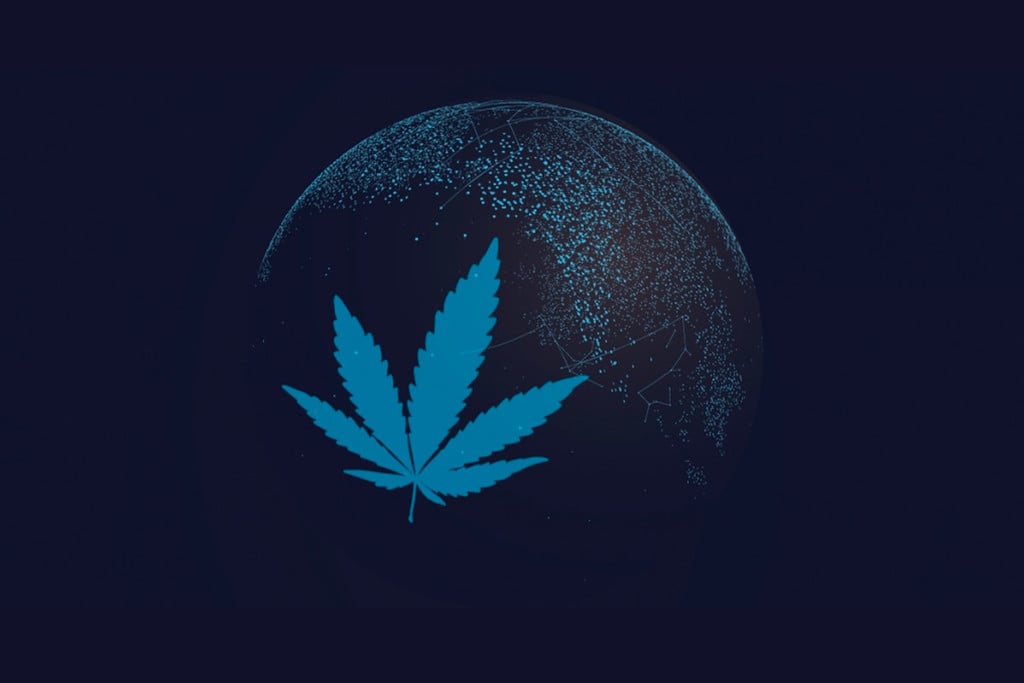.
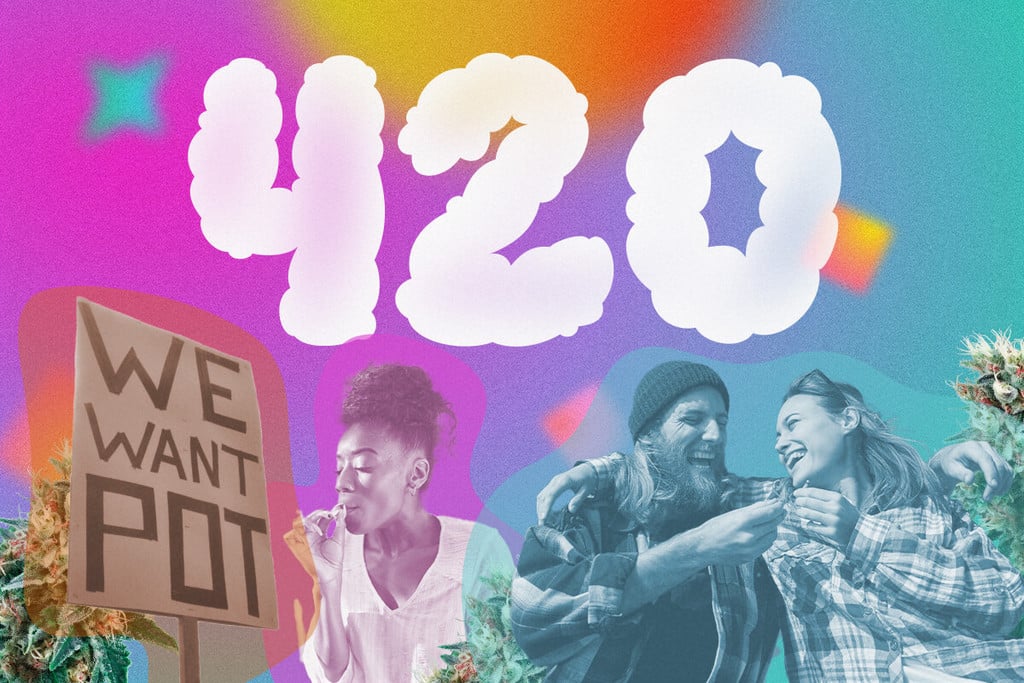
420: How the Movement Began, and How It's Evolving
What started as a humble meeting between friends has rapidly evolved into a worldwide movement, now with significant corporate involvement. 420 has grown massively over the years, and continues to do so. But is this a good thing? Find out exactly how the face of 420 has changed, and how you can help determine its fate.
420 the movement started as a small-scale, grassroots effort, yet has quickly become a worldwide event, and today represents part of a billion-dollar industry. However, 420 means something different to everyone.
Some cannabis lovers view the day simply as a celebration of all things weed. It serves as an annual event to come together as a community, head to beautiful spots, and enjoy the herb together. This, after all, pays homage to the origins of 420—a simple time on the clock where smokers take a reprieve to socialise and blaze.
From these humble origins, 420 has rapidly evolved into a worldwide event, co-opted by many different groups for many different means. Cannabis activists use this day to push their agenda of mass legalization—and it shows!
Contents:
Mathematicians say there's something interesting about every number. They can tell you facts intrinsic to the nature of any digit. This can be fascinating, depending on how good you are at maths and how high you are. The properties numbers exhibit in the laws of nature are just the beginning. Humans then assign certain associations to different numbers. The rule of thirds. Lucky seven. These get more specific depending on what culture you're exploring. Each has its own memes and symbolism surrounding a certain number. In the case of marijuana enthusiasts, 420 is that special number. But why that number? How did it, just, become a thing?
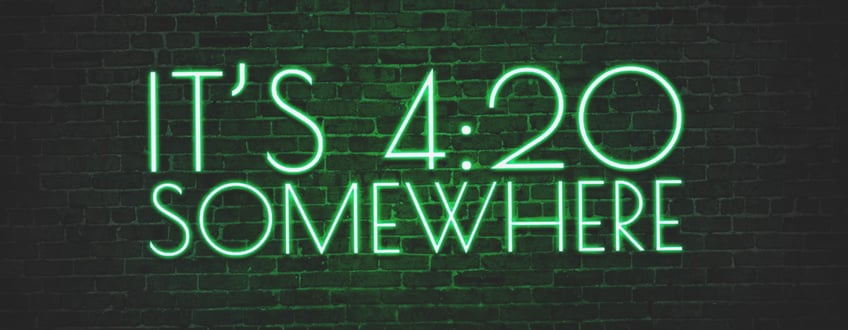
Urban Legends
Stories circulate about the origin of 420, quite possibly from newcomers trying to guess why it became synonymous with weed. Some of the explanations are pretty out there, so at the risk of reinforcing the Familiarity Backfire Effect[1], let's debunk some misconceptions surrounding 420. For example, 420 is not the number of cannabinoids in cannabis.
Given the connection people like Bob Marley had to marijuana, it's also a misconception that 4/20 (or April 20th) is a reference to the date he died or was born. Not true. Nor is this the case with other musicians lumped into this myth like Jimi Hendrix or Jim Morrison.
Another musical myth about 420 was that the Grateful Dead insisted on staying in hotel rooms with the number 420 on tour. While they are known to be keen supporters of cannabis, they were not quite that fastidious about it.
420 is not the police radio code for a marijuana offence in progress. Nor is it the number of any penal code relating to cannabis. As for any piece of cannabis legislation with the number 420, there has only been one, California Senate Bill 420. This was in 2003, however, long after the term's popularisation. And no one knows who got that number assigned to the bill.
The True Origin of 420
So, where did 420 actually come from? Many myths surround this tradition. Some theorise that it stands for a police codeword for a marijuana violation. Others claim that it refers to a meeting time for students to blaze after class. While valiant attempts to clarify the cryptic nature of 420 are widespread, no theory quite hit the mark.
Now, we have the truth regarding the origins of 420—it all boils down to a weed-themed version of The Goonies. Why are we so sure of its validity? Because the group of kids behind this number—now grown men—spilt the beans[2] to Forbes. It all started in San Rafael High School, California in 1971. Here, a group of kids who called themselves The Waldos caught wind of an abandoned growing operation.
A friend had brought them a hand-drawn map and a far-fetched tale about his older brother—a coast guard. After growing weed in a secluded coastal location, he and his colleagues gave up the grow in fear of being discovered. Naturally, the group of high school kids felt a sense of adventure and planned their departure.
The Waldos agreed to meet at the convenient time of 420 by a designated statue on campus. They piled into a car, sparked a few joints, and hit the road. They failed to encounter fields full of green on the first attempt, but continued the hunt for weeks on end.
While they never stumbled across the mythical growing operation, 420 quickly became part of their vernacular. They could suddenly use this codeword for weed in front of anyone without fear of detection, even parents, teachers, and cops. This code quickly spread to their younger brothers, other classes, other schools, and even other states.
Soon enough, 420 spread like wildfire throughout the whole United States. One of The Waldos, named Dave Reddix, eventually started working for The Grateful Dead behind the stage. He ended up smoking with a bunch of famous musicians and introduced them to the term 420. These events catapulted the code internationally.
Today, what started as a meeting time has become an international movement. As a date, 420 now serves as a day of unity, civil disobedience, and freedom across the world in the name of weed.
How 420 Shapes the World
Sound out co-workers and acquaintances on their familiarity with cannabis by idly saying, "It'll be 4:20 soon". People who enjoy weed end up discovering this magical number one way or another, so it does remain a handy code word.
Many online dating profiles now feature the phrase "420 friendly". When picking an international day to recognise the activism for cannabis legalization, the 20th of the fourth month seemed an ideal choice. April 20th sees events celebrating cannabis around the world. These range from festivals in accepting countries to protests in more prohibitive ones. See what events are happening near you. The day has become important to mark progress for cannabis acceptance around the world. You know what time to be there.
How 420 Is Evolving
Over the years, 420 has leapt from the personal to the political, with gigantic gatherings in hundreds of cities over the world. Cannabis activists have played a pivotal role in putting these events together, driving publicity and developing groups that add an element of protest to the movement.
Head to Hyde Park in London on 420, and you’ll see activists among the casual smokers celebrating. After lighting joints when the clock strikes that magical time, they often head to parliament to make sure their message gets heard.
While some users prefer to do nothing but smoke and relax on this special day, we owe a lot to these movements. These voices are the reason cannabis legalization continues to sweep the planet—one country and state at a time.
While most weed lovers welcome activists to the movement with open arms, the same group aren’t too keen on the massive corporate interest that has entered the cannabis arena by storm.
With the dawn of widespread legalization, large companies have jumped into action to exploit the industry for profits. Suddenly, 420 has been positioned squarely in mainstream culture. While it remains true to its roots in some circles, the three numbers have become a lucrative buzzword for dispensaries, large circulating magazines, and other companies.
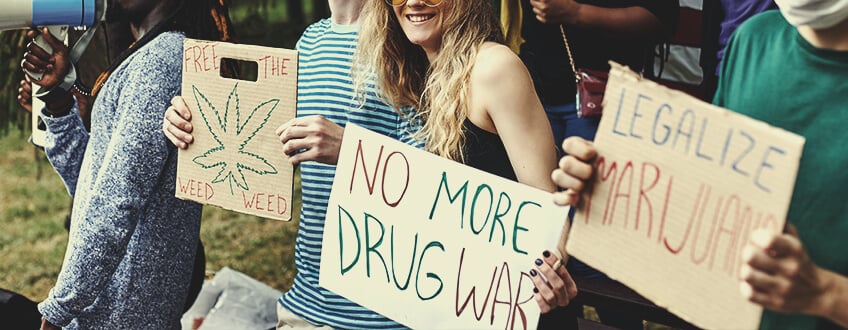
Rather than representing underground cannabis culture, 420 now mostly marks a day of discounts and deals. While many supporters of the movement oppose this material aspect of 420, it’s actually a double-edged sword.
Sure, big businesses are making big bucks, but the activism that catalysed legalization also gave rise to an entirely different type of marketplace: small-scale, local, and artisan businesses.
These companies represent the core values of 420. They pay homage to cannabis with carefully crafted products, incredible genetics, organic growing methods, and by fostering local communities.
Among a sea of corporate companies stand thousands of seed banks, dispensaries, and craft growers and breeders that put the herb before the money. Activism and the 420 movement paved the way for these businesses to succeed and grow under a legal model, and smokers can vote with their dollars on this special day to allow these companies to flourish against the corporate competition.
Whether old-school stoners like it or not, 420 will continue to morph and evolve. However, members of the movement needn’t take a backseat. The guiding force of the movement takes the form of money, but the community decides where that money goes.
How Covid Changed 420
Along with legalization, the COVID-19 pandemic also vastly changed the face of 420. For decades, 420 involved hundreds of thousands of weed lovers meeting up across the planet. In legal areas, massive groups of supporters smoke in public to demonstrate their rights. In illegal areas, people do the same in a massive act of civil disobedience, often overwhelming police through numbers in peaceful demonstrations.
The pandemic completely changed this dynamic. In 2020, 420 took a massive blow. Public parks, city squares, and beaches—usually filled with large groups and clouds of aromatic smoke—stood completely empty.
Instead, people were confined to their houses, apartments, and gardens all across the world to celebrate. Thankfully, as COVID eases its grip, 420 is set to explode back onto the scene. In 2021, events will begin to take place once more.
It’s as though the energy of last year has been stored up, pulling back the bowstring, ready to fire in 2021. Although many restrictions remain, 420 will have a different flavour this year. The event has always been about freedom, and now we’re emerging from lockdowns ready to savour that feeling more than ever before.
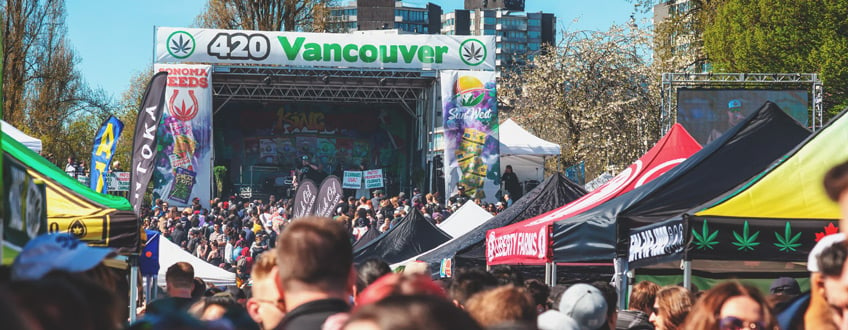
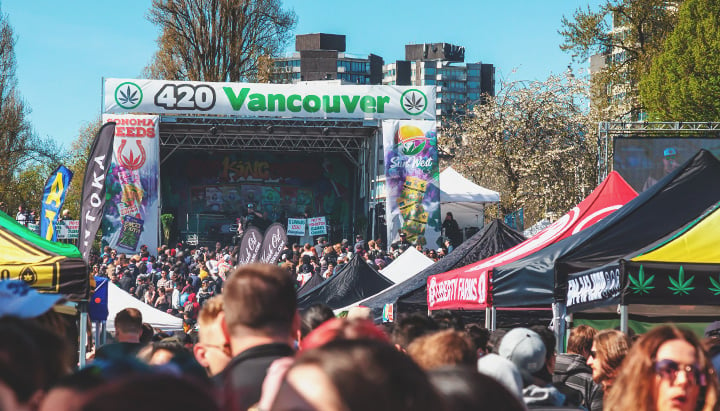
The Future of 420
To predict the future of 420, we need to recognise its past. This legendary event all started with a group of friends that loved weed. Somehow, that small action has become a global event involving millions of people, thousands of businesses, and hundreds of activist groups.
Since the inception of 420, cannabis has become legal in a significant amount of countries, states, and cities—an outcome surely far exceeding the expectations of the founders. Although many other movements and individuals outside of 420 helped make this possible, 420 still acts as a huge driving force.
Now, cannabis is more accepted than ever. The taboo has faded. Prison sentences for possession are being expunged. Businesses are popping up all over the planet. It seems as though 420 has run its course, but, in reality, it’s only just beginning.
As more nations continue to accept cannabis, 420 will only grow stronger and more mainstream. The nostalgia of its inception will also remain, but we need to move with the times and accept that 420 is now more of an international holiday than a simple meeting time for a group of friends to smoke up—now it’s more like a group of nations!
420 at Royal Queen Seeds
At Royal Queen Seeds, we’ve supplied high-quality cannabis genetics to Europe and the UK for years. It brings us great joy that many of the flowers that go up in flames on this day come from our archive.
We’ve always remained true to our vision. We advocate for the complete legalization of cannabis, and we love to use 420 as an occasion to push this message. Just like any other holiday, we offer our customers discounts on this day to help them with the growing process. Check out our 420 offers, and vote with your dollars to help businesses that support the core value of 420 thrive.
- The Debunking Handbook Part 2: The Familiarity Backfire Effect https://skepticalscience.com
- Meet The Founding Fathers Of 420: The Waldos | Forbes - YouTube https://www.youtube.com


























